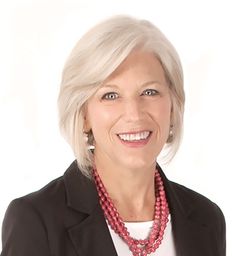*This is an article from the Spring 2022 issue of Contentment Magazin
Cynthia Ackrill, MD, PCC, FAIS
Editor
Life is getting more and more exciting in the world of stress and brain research! And thanks to the failed global stress test of a pandemic, more and more people are getting curious about how we can use this data and science to support healthier, happier, fully human lives. Fear of vulnerability or classic denial of the need to address stress has been part of our “success” culture for too long. How encouraging it is to see the growing interest in how we can thrive in a complex world working with our human wiring. It’s a privilege to bring you the wisdom of these impressive contributors.
The first article by Lewis Coleman, MD, FAIS, our new Chair of Science and Education, is a follow up to the presentation of his landmark work on the Mammalian Stress Repair Mechanism in the last issue. He eloquently explains the three pathways that make up the stress repair mechanism and how well they are designed to protect and heal our human minds and bodies. He teases out the chemical communications and how disease occurs when these pathways are not in balance. Understanding this interplay opens so many possibilities for better ways to address our stress, prevent and treat disease.
Evian Gordon MD, PhD, FAIS, and Donna Palmer, PhD explain the benefits of practices to unwind the stress reaction in the moment. Your brain is responding to a “threat” within a fifth of a second — long before you are aware. Their Total Brain database is revealing that the sooner and more often you practice a technique to induce the relaxation response, as first described by Hebert Benson, MD, the more you reduce the toxicity of chronic stress overload and raise your Heart Rate Variability, a key indicator of health and resilience. This is putting the science to work for us!
The next four articles dig deeply into the interconnections between our narratives around stress and emotions and our desire to feel in control and happy. There is so much out there about ways to address the symptoms of stress, but how much more empowering it is to look for the sources and change the results.
Frank Forencich, DAIS shares a chapter of his book, Beware False Tigers, in which he puts our common narrative about stress in historical perspective in a way that shows why we feel unprepared for the complexities of real life. Our thinking of stress as something external, to be eliminated, is not helpful in the long run. He points out our lack of stress education, especially for handling the bigger challenges of life, and how that has set us up to be reacting to the wrong tigers. Fascinating discussion!
Jeff Jernigan, PhD, BCCPC, FAIS delivers another thoughtful article on a topic that makes many feel uncomfortable — anger. He discusses the meanings of this typically maligned emotion, what might be triggering it, what it may be signaling, and how a healthier perspective will benefit your well-being and your relationships. I know I have coached many high achievers who figured out that poor boundaries can set them up for frustration and anger. This is an article to ponder and share.
Josh Briley, PhD, FAIS addresses another factor intimately entwined with our perception of stress — our desire for control. This is particularly relevant after these past few years of uncertainty. He offers practical advice on shifting your focus from people, places, and things (what you can’t control) and onto actions, attitudes, and faith (that you can control). This article stimulates some powerful reflection and offers real-world adjustments that will bring you more ease.
And finally, Jen Butler, MEd, MCC, DAIS takes an in-depth look at how trusting yourself plays into making life choices that result in less stress. She offers a methodical process for making decisions using a series of decision gates based on your priorities and needs. And she even gives you strategies for saying, “No,” with respect for all. As a fellow coach, I also see how often learning to say no with integrity can save future stress. This article helps you connect the dots between decisions, responses, and living the life you want with less stress.
May this shared wisdom inspire you to make your 2022 and beyond more joyful than stressful!
![]()
